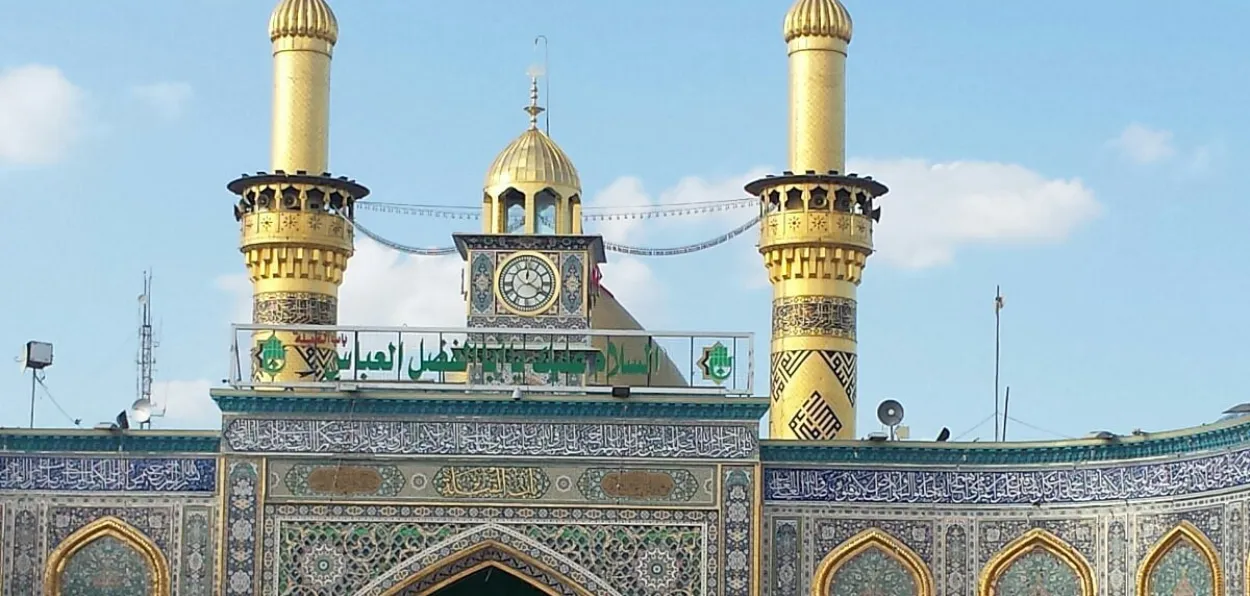
Imam Husain’s martyrdom saved Islam
Eman Sakina
The legacy of Imam Husain ibn Ali, the grandson of Prophet Muhammad, stands as one of the most defining moments in Islamic history. His ultimate sacrifice at Karbala was not merely a personal or family tragedy—it was an act that safeguarded the essence, principles, and spirit of Islam itself.
Friday Musings
In an age when the core values of Islam were under grave threat, Imam Husain rose with unmatched courage, not to claim power, but to preserve the true teachings of his grandfather.
After the demise of Prophet Muhammad, the leadership of the Muslim Ummah passed into the hands of various Caliphs, and gradually, a significant shift occurred in the political and spiritual landscape of the Islamic world. By the time Muawiya ibn Abi Sufyan established the Umayyad dynasty, Islamic governance had begun to resemble monarchies rather than the just and spiritual leadership as founded by the Prophet.
Muawiya’s son, Yazid, was appointed as his successor in an unprecedented move that contradicted the spirit of Shura (consultation) and merit-based leadership in Islam. Yazid’s actions were openly un-Islamic: he was known for indulging in sin, disrespecting religious norms, and openly violating the teachings of Islam. His rule threatened to distort the moral and spiritual foundations of the faith.
Imam Husain, as the only surviving grandson of the Prophet, carried the responsibility of standing up against this distortion. Accepting Yazid’s rule would have been tantamount to endorsing a corrupt and tyrannical leadership as legitimate in Islam. This is where the mission of Husain began—not for political gain, but to protect Islam’s message.
In 680 CE, Yazid demanded Imam Husain’s pledge of allegiance. Husain refused, stating: "A man like me does not pledge allegiance to a man like Yazid."
He left Medina with his family and companions, heading toward Kufa, where he was promised support by the people. However, before he could arrive, the people of Kufa were terrorized and silenced by Yazid’s forces.
Imam Husain was intercepted by the Yazid's army in the desert of Karbala. Refusing to submit, Husain and his small group of about 72 companions, including women and children, were surrounded, denied water, and brutally attacked on the Day of Ashura (10th Muharram). Despite being outnumbered by thousands, Imam Husain and his companions fought with unmatched bravery and dignity.
He was ultimately martyred, but not before declaring his purpose:
"I have not risen to spread evil or tyranny. I have risen to reform the Ummah of my grandfather, to command good and forbid evil."
Though Imam Husain was killed, Yazid's victory was short-lived. Husain’s martyrdom sparked moral outrage across the Muslim world. People who were silent or complicit in Yazid’s actions began to reflect on their roles. It led to revolts, including the uprising of the people of Medina, and the Tawwabin (the penitents) movement in Kufa, who sought to atone for abandoning Husain.
The powerful message of Karbala spread beyond borders. The event highlighted the moral divide between Islam as taught by the Prophet and the tyrannical rule of Yazid. Imam Husain had exposed the corruption at the heart of the Umayyad regime.
Here is how Imam Husain saved Islam:
Preservation of Islamic Values: By refusing to bow to Yazid, Imam Husain drew a clear line between true Islam and a corrupted version used for political gain. He preserved values such as justice, dignity, truth, and resistance to oppression.
Role Model of Resistance: His stand became the ultimate example for all Muslims to resist tyranny. He showed that even in defeat, standing for truth is a greater victory than submitting to falsehood.
Revival of Islamic Consciousness: His sacrifice rekindled spiritual and ethical awareness in the Ummah. Annual commemorations of Karbala became a source of reflection, morality, and unity for Muslims.
Empowerment of the Oppressed: Karbala gave a voice to the downtrodden. Imam Husain, with a small band of oppressed people, challenged a mighty empire. His story continues to inspire resistance movements across generations.
Safeguarding Prophetic Legacy: The spiritual, ethical, and social teachings of the Prophet were at risk of being diluted by corrupt leadership. Imam Husain’s actions kept that flame alive.
READ MORE: Shams Alam overcame paraplegia to become India's top para-athlete
The impact of Imam Husain’s sacrifice remains as relevant today as it was centuries ago. In times of moral confusion, political oppression, and spiritual decline, the stand of Husain serves as a compass for Muslims. His life calls believers to uphold justice, speak against tyranny, and remain steadfast in faith even under the greatest pressure.
The famous saying captures it best: "Islam is alive because of Husain’s martyrdom."
